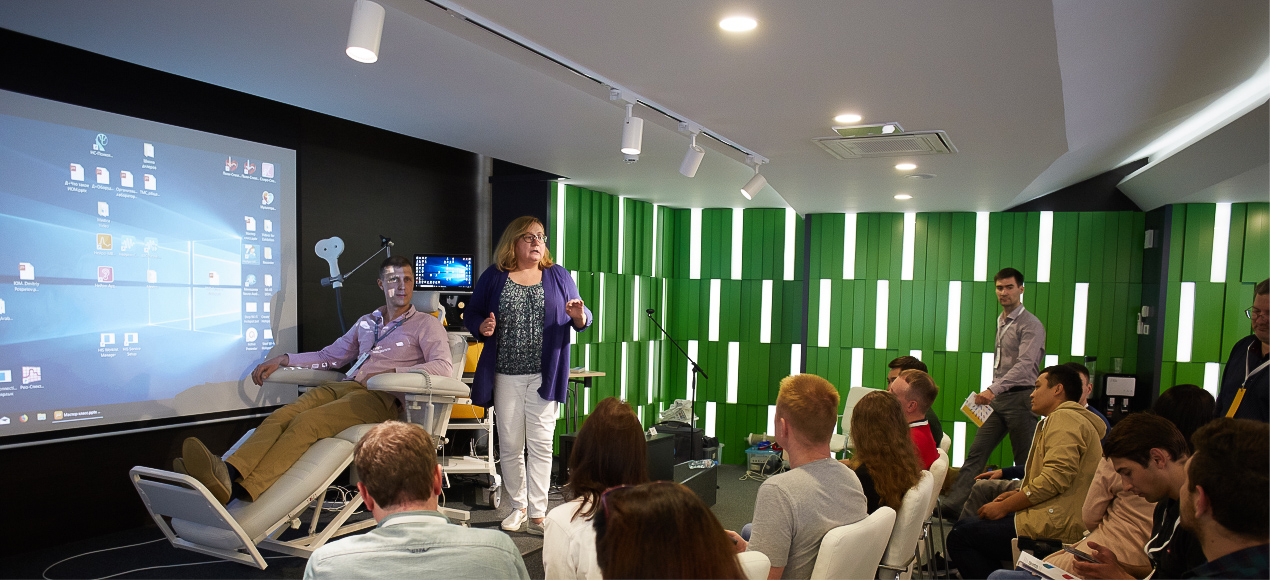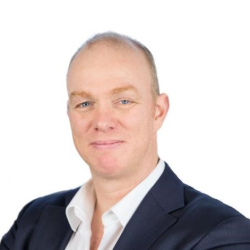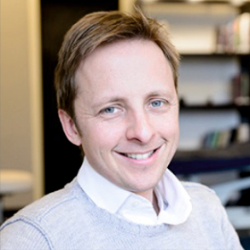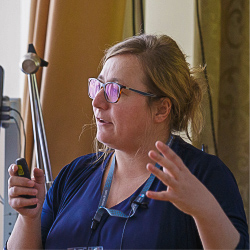The annual Utrecht TMS course
- Two-day TMS course
- TMS lectures
- Appropriate for clinicians and researchers
- Hands-on session using TMS equipment

Lecturers

Bas
Neggers
Bas Neggers was trained as a biophysicist at the University of Nijmegen and obtained his PhD degree at the Max Planck Institute in Munich in 2000. He founded Brain Science Tools in 2011 in order to pursue valorization of techniques developed at the UMC Utrecht to help patients benefit from innovative approaches.

Bram
Wernsen
Bram Wernsen finished his Master's degree in psychology at the University of Utrecht in 2009. After noticing that rTMS resulted in quick improvements for his patients, he decided to specialize in rTMS treatment. He opened his first rTMS clinic in 2014 and currently Bram owns three rTMS clinics in the Netherlands.

Indira
Tendolkar
Professor Indira Tendolkar has a broad clinical experience in general and geriatric psychiatry. Her research focuses on biological treatment methods such as pharmacotherapy, electroconvulsive therapy, and transcranial magnetic stimulation of affective disorders. Professor Tendolkar's main interest is the causal relationship between affective disorders and the dysfuntion of the declarative memory.

Anna
Maslyukova
Ph.D. in Medicine, Neurosoft Medical affairs manager, TMS clinical application specialist.
Anna is the author of scientific articles devoted the transcranial magnetic stimulation application. She regularly speaks at international congresses such as the World Neurological Congress, the International Conference on Brain Stimulation with lectures and workshops on TMS.
Program
| Day 1 Clinical Use of TMS, EMG and Neuronavigation | |
| Welcome + Coffee | 09.00 - 09.30 |
| Introduction to TMS (Nicolay Smirnov, Neurosoft) | 09.30 - 10.15 |
| Introduction to Neuronavigation (Bas Neggers, UMC Utrecht/Brain Science Tools BV) | 10.15 - 10.45 |
| Coffee Break | 10.45 - 11.00 |
| TMS Treatment of Psychiatric Disorders I (Bram Wernsen, MSc, rTMS specialist) | 11.00 - 12.00 |
| Panel Discussion, Q&A Session | 12.00 - 12.30 |
| Lunch Break | 12.30 - 13.30 |
| TMS for Treatment Use — Practical (Anna Maslyukova, Neurosoft) | 13.30 - 15.00 |
| B-STARS Trial: TMS Treatment During Stroke Rehabilitation (Jord Vink, UMC Utrecht/Brain Science Tools BV) | 15.00 - 15.30 |
| Coffee Break | 15.30 - 16.00 |
| MRI-guided Neuronavigation for TMS Treatment – Master Class (Bas Neggers, UMC Utrecht/Brain Science Tools BV) | 16.00 - 16.30 |
| MRI-guided Neuronavigation of Typical Treatment Targets: M1, DLPFC, TPC, mPFC – Practical | 16.30 - 17.30 |
| Day 1 Wrap Up | 17.30 - 17.45 |
| Dinner | 18.30 |
| Day 2 Advances in TMS, EMG and Neuronavigation: Research | |
| TMS Treatment of Psychiatric Disorders II (Prof. Indira Tendolkar, Radboud University, the Netherlands ) | 09.00 - 10.00 |
| TMS Outcome Measures — Motor Evoked Potentials (MEP), Silent Period (SP), Inter-hemispheric Inhibition (IHI) and Others – Master Class (Anna Maslyukova, Neurosoft) | 10.00 - 10.30 |
| Coffee Break | 10.30 - 10.45 |
| TMS Outcome Measures – Practical (Anna Maslyukova, Neurosoft) | 10.45 - 11.45 |
| Biophysics of TMS: What Is Happening in the Brain? (Bas Neggers, UMC Utrecht/Brain Science Tools BV) | 11.45 - 12.15 |
| Basic Electrophysiological Effects of TMS (Anna Maslyukova, Neurosoft) | 12.15 - 12.45 |
| Lunch Break | 12.45 - 13.45 |
| Modeling of Coils and Brains (Petar Petrov, UMC Utrecht/Brain Science Tools BV) | 13.45 - 14.10 |
| Insights from TMS During fMRI: What Happens in the Brain When Stimulating DLPFC? (Jord Vink, UMC Utrecht/Brain Science Tools BV) | 14.10 - 14.55 |
| Coffee Break | 14.55 - 15.10 |
| Introduction to MRI-navigated Motor Evoked Potential Mapping — Master Class: Live Demonstrations + Practical | 15.10 - 15.50 |
| Continued Practical: rTMS for Depression / Outcome Measures / Navigated TMS, Navigated MEP | 15.50 - 16.45 |
| Course Wrap up | 16.45 - 17.00 |
Main Issues
TMS treatment for psychiatric disorders
TMS treatment during stroke rehabilitation
rTMS for depression
Neuronavigation for TMS treatment
TMS outcome measures
Basic electrophysiological effects of TMS
Workshop
The workshops are organized using TMS, neuronavigation and EMG equipment. Here you can train how to use the equipment assisted by healthcare professionals. Also, you can learn how to select an appropriate TMS protocol, determine the hotspot and target, perform and interpret motor mapping using MRI-guided neuronavigation and EMG.
Intended Audience
The Utrecht TMS course is intended for clinicians and technicians who want to apply transcranial magnetic stimulation in their everyday practice.